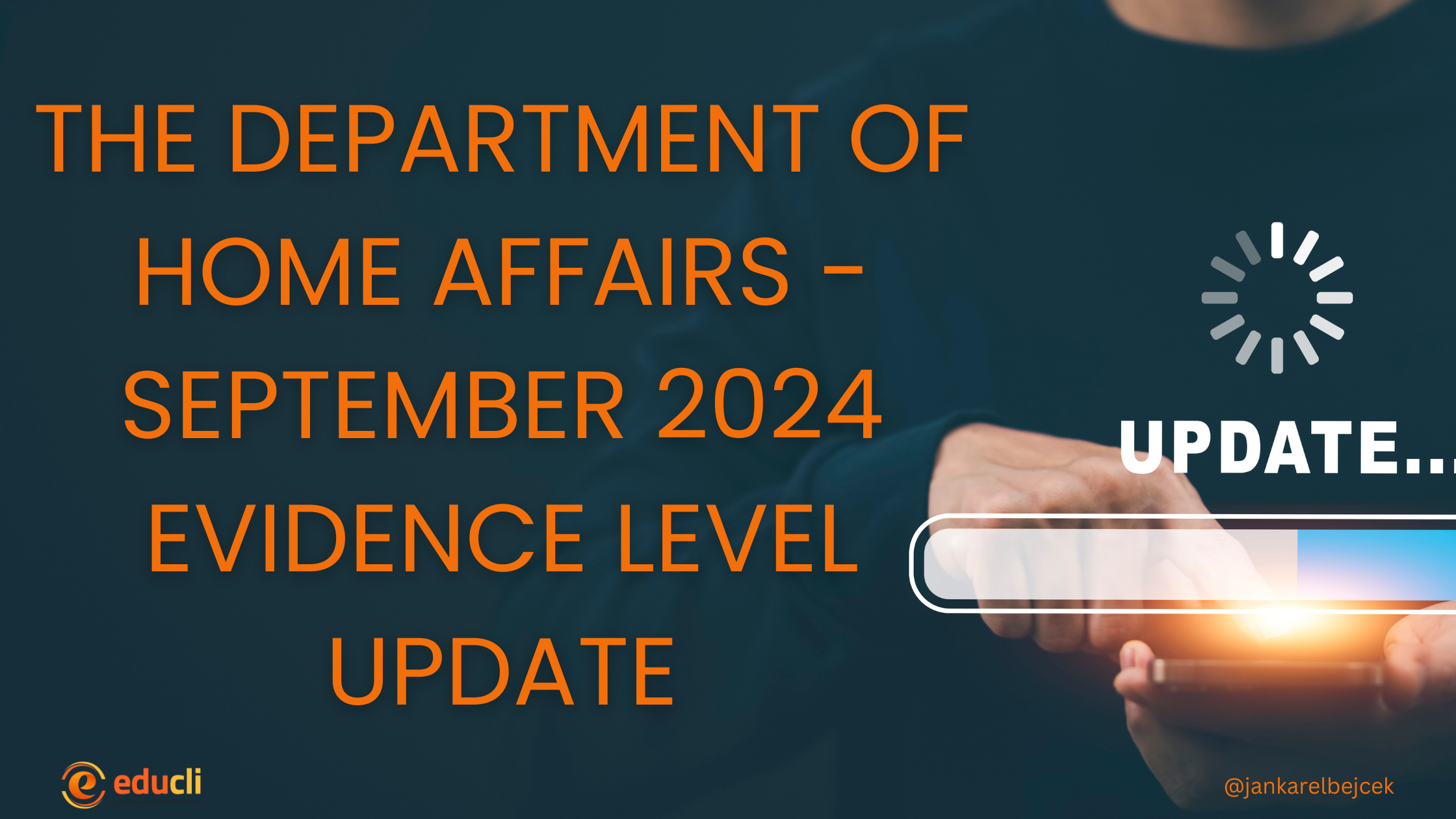The Department of Home Affairs – September 2024 Evidence Level Update
The Department of Home Affairs has announced today, 03 October 2024, a pause on changes to the Evidence Levels for countries and education providers that were originally scheduled for September 2024.
The pause on changes to the Evidence Levels means that the Australian government is temporarily delaying planned updates to the risk assessment for countries and education providers involved in the international student visa process. Usually, these updates, which occur twice a year, determine how much financial and English language evidence students must provide when applying for visas.
By pausing the changes, the government is giving education providers more time to adjust their recruitment and enrollment practices to align with upcoming legislation (the ESOS Act changes). If these legal updates don’t go through, the government will later decide when the Evidence Level changes should take effect. Essentially, this pause allows for a smoother transition and gives education providers more time to prepare for any new compliance requirements.
This decision, made by Minister for Home Affairs, The Hon Tony Burke MP, follows a review of the Evidence Level outcomes for the period of 1 July 2023 to 30 June 2024. The update is now on hold and will be synchronized with the anticipated passage of the ESOS legislation and the removal or replacement of Ministerial Direction 107, pending further decisions by the Minister.
Evidence Levels play a vital role in maintaining the integrity of Australia’s Student visa program. Twice a year, the Department of Home Affairs reassesses these levels in March and September. These assessments are based on adverse immigration outcomes such as visa cancellations and refusals due to fraud, and they ensure that the Simplified Student Visa Framework (SSVF) is responsive to the most recent trends and risks in student visa outcomes.
Each education provider’s Evidence Level is calculated from these outcomes, placing the responsibility on them to recruit and enroll genuine students who are qualified to pursue their intended courses. This is a shared responsibility, as maintaining accurate and complete applications is critical to the program’s sustainability and the provider’s own risk assessment within the SSVF.
The combined Evidence Levels of a country and an education provider directly affect the requirements for Student visa applicants in terms of financial documentation and English language proficiency. Thus, changes in Evidence Levels can have a significant impact on student recruitment processes, financial compliance, and admission standards for education providers.
Education Providers’ Role in Ensuring Integrity
The reputation and sustainability of Australia’s international education industry hinge on the integrity of the Student visa program. Every stakeholder—registered education providers, immigration agents, and governmental bodies—plays a crucial role in maintaining a high-integrity system. The Department of Home Affairs emphasizes the need for education providers to exercise rigorous recruitment processes and to foster transparent application procedures to prevent adverse immigration outcomes.
Education providers must remember their shared responsibility to safeguard the integrity of the Student visa program, as these standards are critical to preserving Australia’s standing as a premier international education destination. The upcoming changes in Evidence Levels, though paused for now, underscore the importance of ongoing vigilance and compliance in recruitment, enrollment, and visa processes.
Next Steps for Education Providers
While the pause on Evidence Level changes may seem like a reprieve, education providers should use this time effectively to:
- Review and Revise Recruitment Practices: Ensure alignment with the upcoming ESOS legislation and the National Planning Level requirements.
- Monitor Legislation Developments: Stay informed on the passage of the ESOS legislation and any changes to Ministerial Direction 107.
- Proactive Risk Management: Strengthen internal processes to prevent visa cancellations and refusals, emphasising genuine student enrollments.
- Engage in Continuous Compliance Training: Equip staff and stakeholders with up-to-date training on the regulatory environment, SSVF guidelines, and ethical recruitment practices.
We’re hosting a series of workshops to help you and your team navigate the upcoming changes to the Evidence Levels and the Simplified Student Visa Framework (SSVF). This is a great opportunity to stay informed, gain valuable insights, and ensure you’re fully prepared for these regulatory updates.
“Reserve Your Spot Now!” https://forms.gle/ubjLSNyPVoEwz8bV9





Leave A Comment